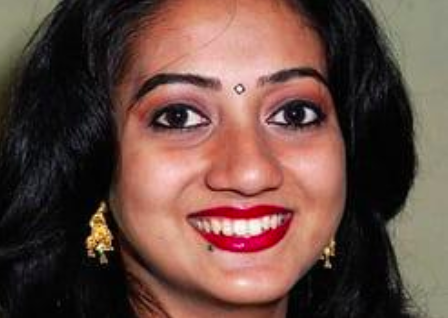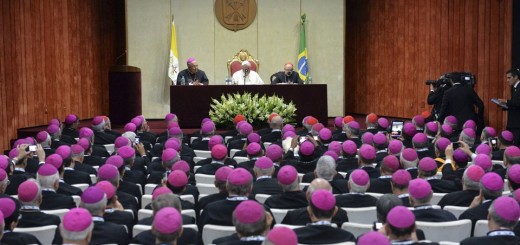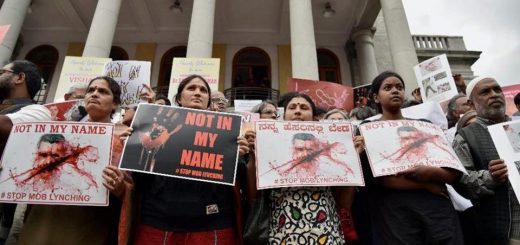Will Indian victim get any credit? Savita 31 from Karnataka was the last victim of brutal Irish Law!

dr. james kottoor (Chicago)
Will Savita, the Indian dentist from Karnataka get due credit or mention in the new liberalized abortion law to be framed soon in Ireland? Speaking to ‘Irish Times’ her father said the new bill should be called: “Savita’s Bill”.
It was this 31 year old Indian who had to die on 28 October, 2012 due to Ireland’s strict ban on abortion and subsequently became a symbol of the referendrum campaign to overturn the country’s inhuman ban.
Catholic country?
When Savita’s husband pleaded for abortion to save her life the arrogant reply he received was: “This is a Catholic Country!” Tomorrow what will people call it? A Protestant country? An “Unchristian Country?”
These people’s Catholicism is “Gheto-Catholicism”, a phrase with which this scribe used to criticize, already from 50 years ago in The New Leader, those Catholics, whose Universality (Catholic mean universal) extended only to the card carrying members, that is, those with names in the baptismal register only.
That unchristian arrogance was reflected when Galway University Hospital authorities retorted: “Ours is a Catholic Country” to his repeated requests of Savita’s husband to permit an abortion. Pride (Catholic or otherwise) goes before a fall. Yesterday’s crushing referendrum was the humiliating punishment meted out to the Irish who waxed too eloquent about their Catholicity.
Why not a ‘Te Deum’?
With 66% of the 2.1 million votes cast, the vast majority of Ireland, wanted "more Catholic than Pope" said a resounding NO to the world’s most restrictive abortion laws. If "voice of people, voice of God" is a Catholic maxim and teaching, shouldn't the entire church celebrate the people’s verdict with songs of thanksgiving like "Te Deum"?
Change being the only constant according to Catholic teaching it will be interesting to listen to the reactions of the Catholic hierarchy in Ireland. Recall here the unforgettable comment of Cardinal Newman we quoted often.
Past ‘Catholic’ records
Ireland legalized divorce by a razor thin majority in 1995 and became the FIRST in the world to adopt gay marriage by popular vote three years ago. Is it proving to be more Catholic than Pope?
Abortion ban was imposed in Ireland through a 1983 referendum. Opponents sporting “Repeal” jumpers & “Yes” badges, gathered in public squares, many in tears and hugging each other. Death in 2012 of a 31-year-old Indian immigrant after she was refused a termination, abortion on demand had become a political war cry that brought victory and joy for the vast majority who wanted freedom and choice in dealing with abortion.
In such matters supremacy of the commanding conscience is the rule every one, Christian or otherwise, is bound to follow, although the conservative wing in the Church still object to it. It is for this rule that the Irish people have votaed. So we may rejoice in the victory of the will of the people. james kottoor, editor ccv.
Please read below the report in UK’s Guardian Ireland's abortion law may be named after Savita Halappanavar!
Harriet Sherwood, in the Guardian,Sun 27 May 201
Campaigners want to honour woman who died after being denied a termination
Savita Halappanavar, whose father has called for legislation that will follow Saturday’s historic referendum result to be referred to as ‘Savita’s law’.
Campaigners for abortion reform in Ireland have said they will support a move to have a new law named after Savita Halappanavar, who died after being denied a termination in 2012.
Halappanavar’s father has called for the legislation that will follow the historic referendum result to be referred to as “Savita’s law”. “We have one last request, that the new law, that it is called ‘Savita’s law’. It should be named for her,” Andanappa Yalagi told the Irish Times.
At a press conference in Dublin on Sunday, Together for Yes, an umbrella group representing pro-repeal organisations, said it would support such a move. It also called on the government to start immediate work on legislation. “The people have spoken,” said its co-chair Orla O’Connor.
Simon Harris, the Irish health minister, will seek cabinet approval for draft legislation, permitting abortion on request up to the 12th week of pregnancy and in limited circumstances up to the 23rd week. The prime minister, Leo Varadkar, has said he hopes a new law will be enacted by the end of the year.
Together For Yes said it would wind down as an umbrella group. “We were here to repeal the 8th and we did,” O’Connor said.On Saturday, Yalagi told the Guardian that the referendum result meant justice had been done for his daughter.
Speaking by phone from his home in Karnataka in south-west India, he said: “We’ve got justice for Savita and what happened to her will not happen to any other family now. I have no words to express my gratitude to the people of Ireland at this historic moment.” A framed portrait of Halappanavar was held above the crowd as results were announced at Dublin Castle on Saturday.
A mural to Halappanavar, who died aged 31 and who became a symbol of the campaign to overturn Ireland’s ban on abortion in all but the strictest circumstances, became a shrine over the weekend, with flowers, candles and messages left at the site.
A mural in honour of Savita Halappanavar in Dublin. Photograph: Charles McQuillan/Getty Images
“Sorry we were too late. But we are here now, we didn’t forget you,” read one note taped to the wall. Another said: “I’m so deeply sorry you had to suffer. You have changed our history and our destiny.”
Halappanavar, who worked as a dentist, was admitted to University Hospital Galway on 21 October 2012 when she was 17 weeks pregnant with her first child. Medical staff concluded that a miscarriage was inevitable but did not intervene – despite requests from Halappanavar and her husband for an abortion – as a foetal heartbeat could be detected. A few days later, medics diagnosed infection as a result of ruptured membranes and later septic shock. Halappanavar died on 28 October.
Halappanavar’s death was a catalyst for the movement to repeal the eighth amendment. An independent inquiry into her treatment found there had been an “over-emphasis on the need not to intervene until the foetal heart had stopped”, as well as poor patient monitoring and risk assessment. It strongly recommended that the Irish parliament consider changing the law, and “any necessary constitutional change”.
In media interviews after his wife’s death, Praveen Halappanavar said the couple had repeatedly asked for the pregnancy to be terminated after her admission to hospital but they were told “this is a Catholic country”.
Thousands of people took part in candlelit vigils and protests across Ireland, calling for changes to allow women to have access to legal abortions. An inquest jury returned a unanimous verdict of medical misadventure.
















